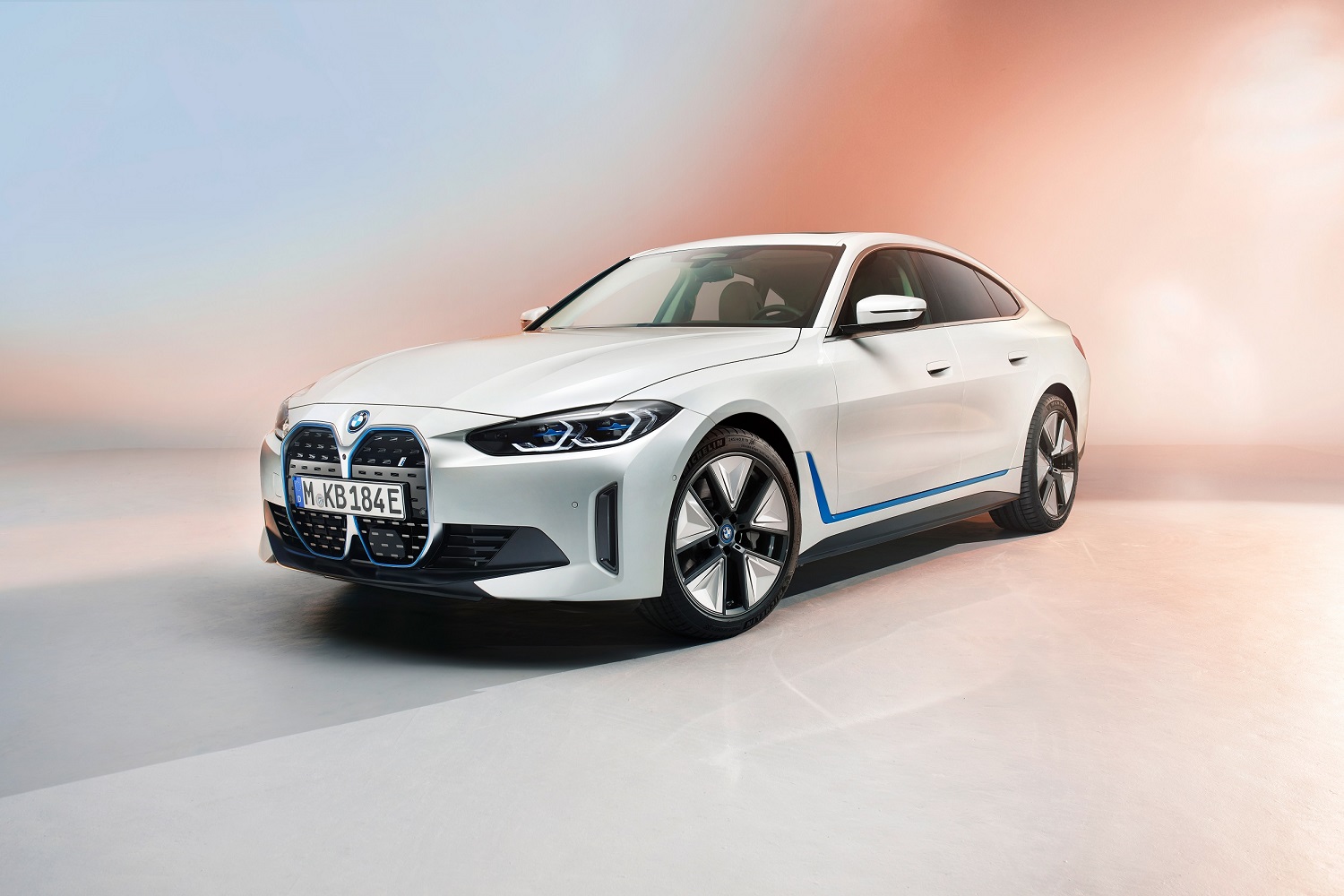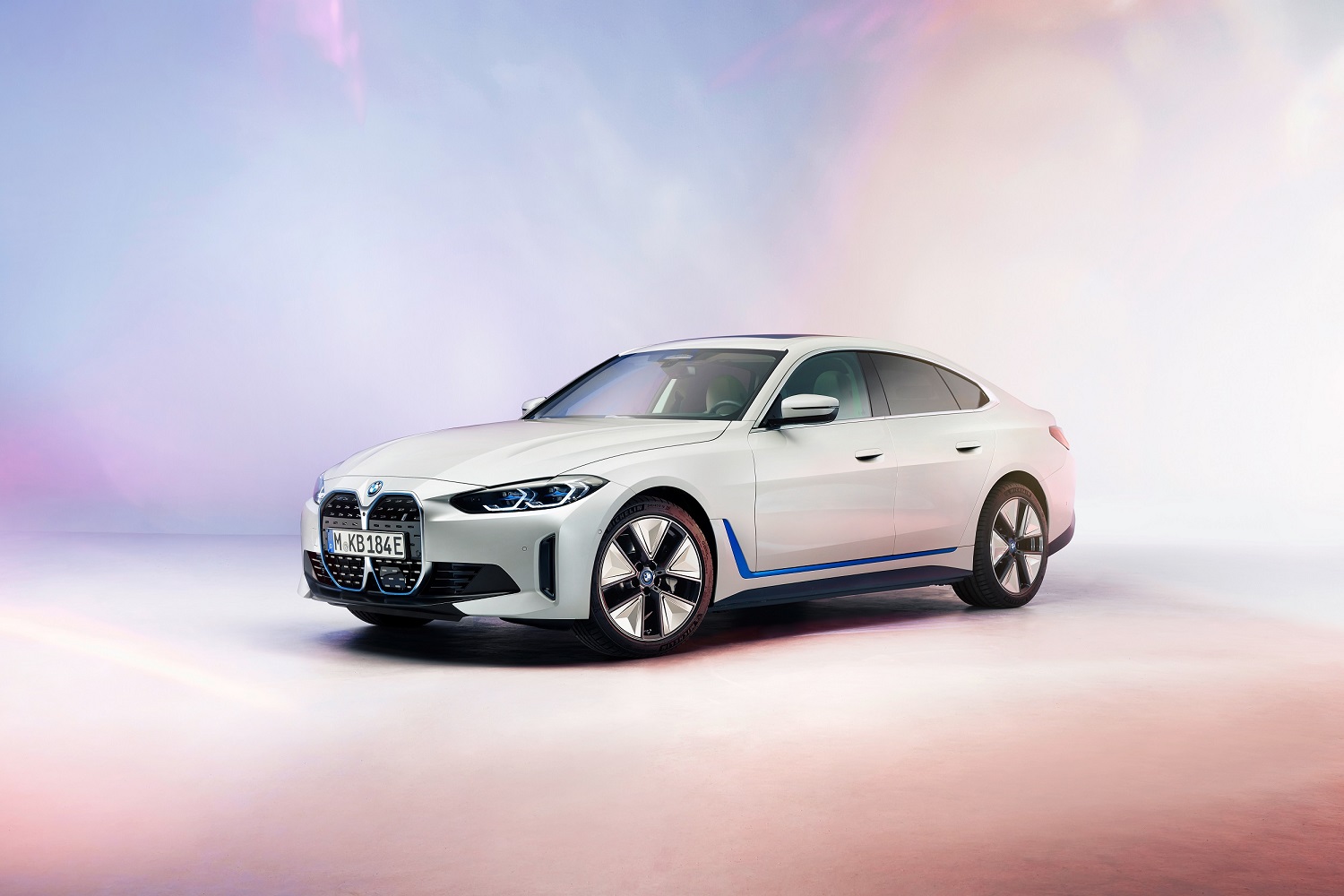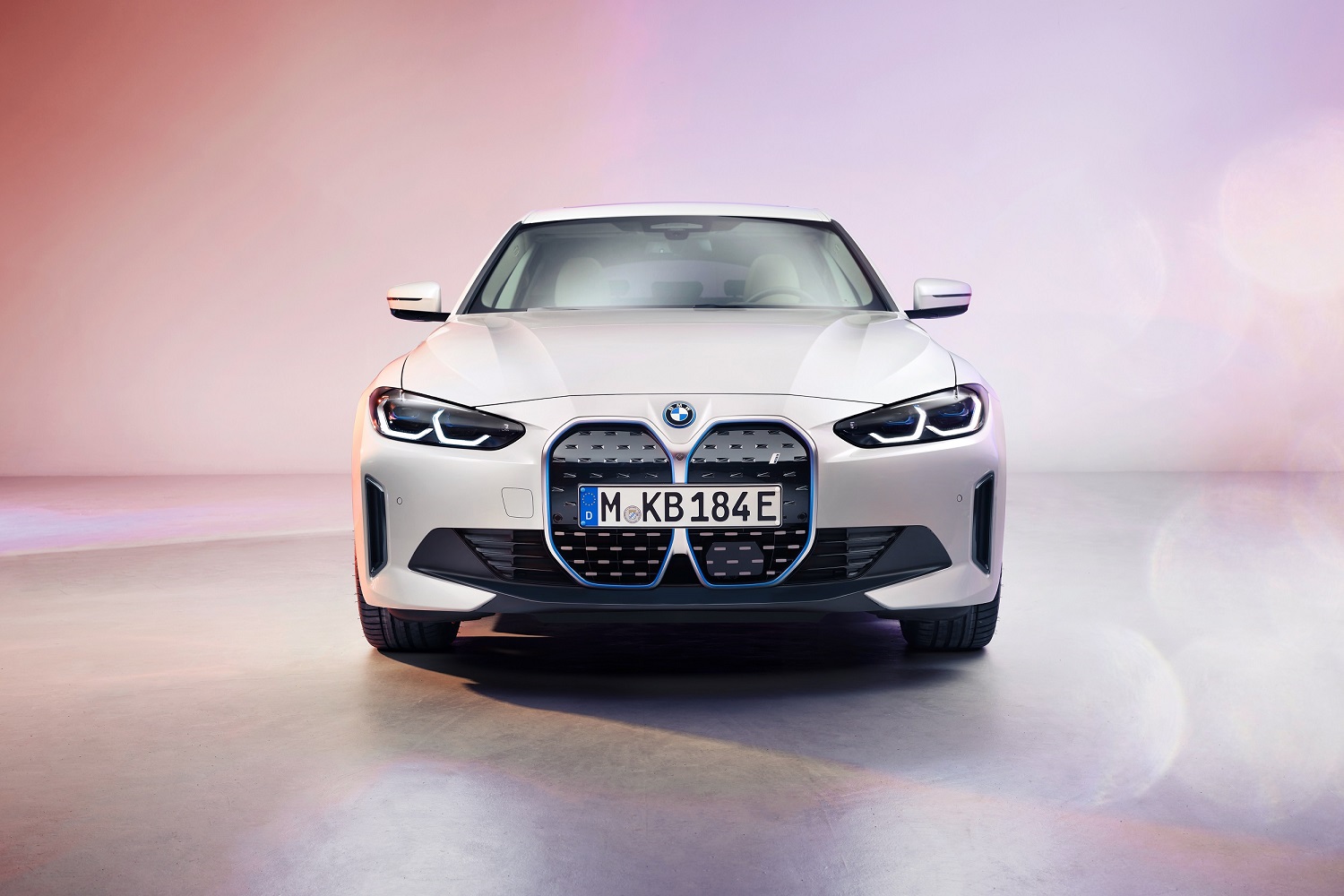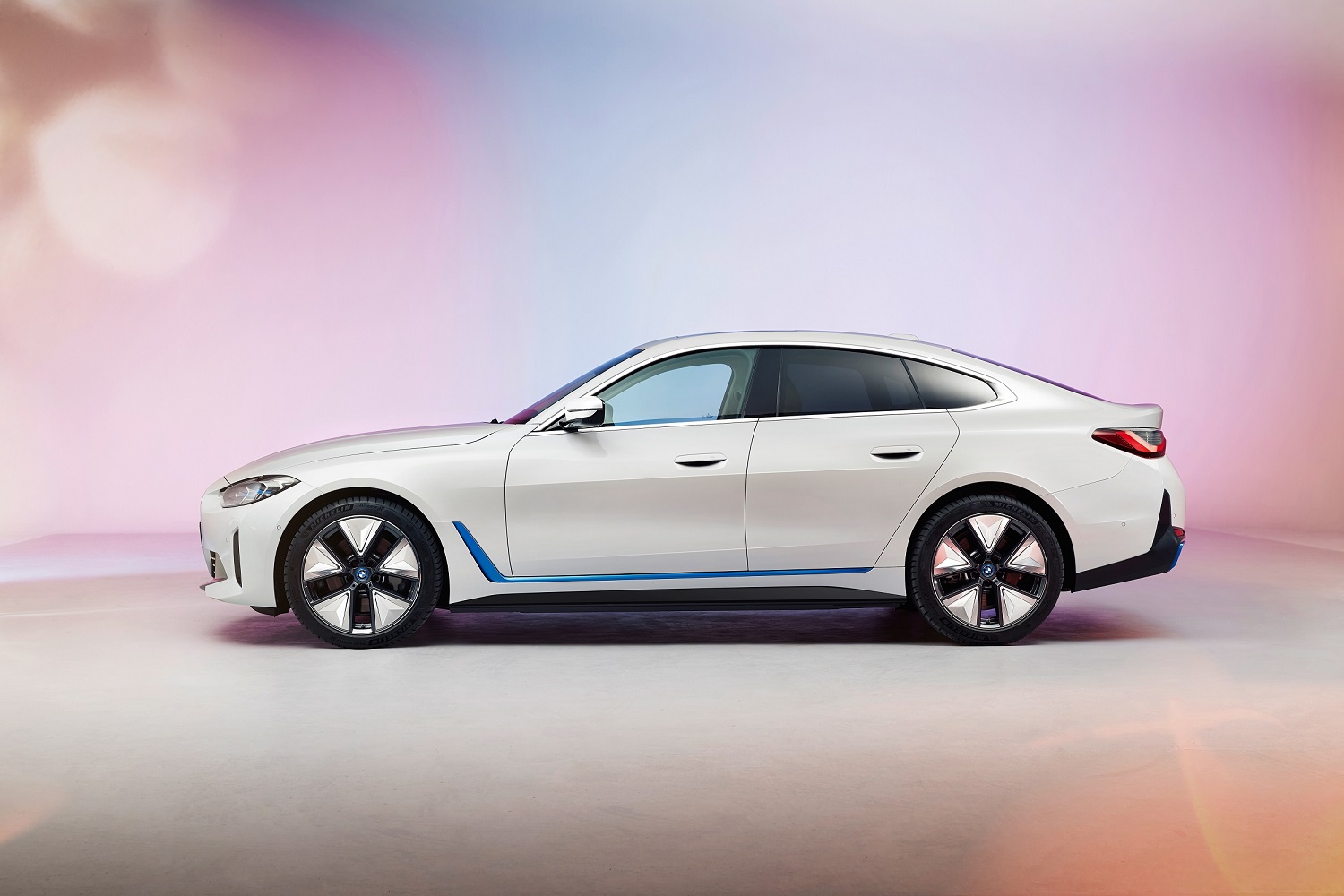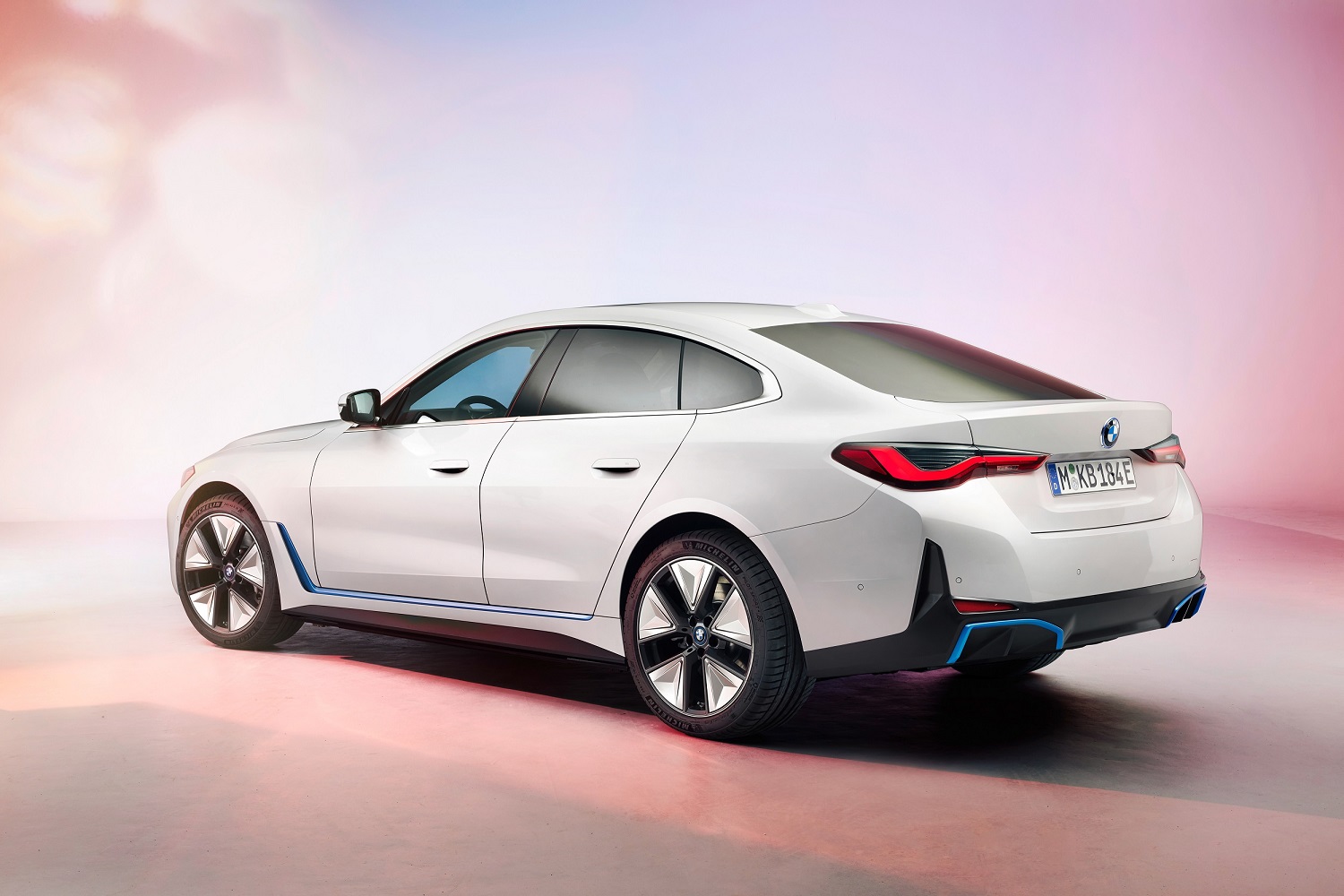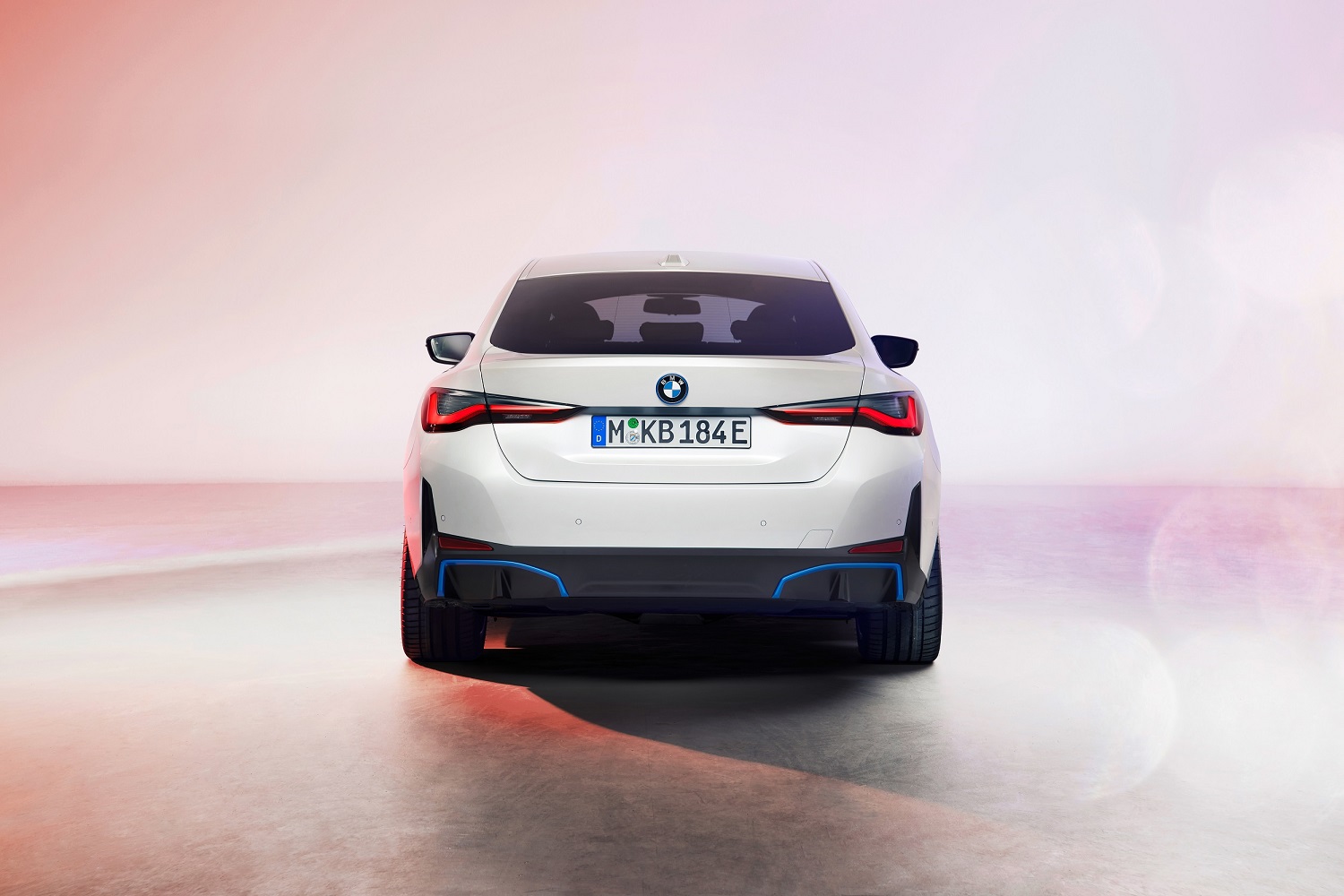BMW introduced the i4, its smartest and most futuristic sedan to date. Fully electric, connected, and powerful, it’s a toned-down version of the Concept i4 developed to give buyers a battery-powered alternative to the 3 Series.
Like the design study, which was presented online in March 2020, the production model wears a giant grille that will fuel chatter for months on end. Some will love it, some will hate it; what’s certain is that it won’t go unnoticed. BMW is applying this styling cue across its range, and its market research reveals buyers like the more assertive look.
Moving beyond the grille, the i4 wears a fastback-like design characterized by a long hood and an almost coupe-like roofline. Only a few color-coded styling cues (and the lack of exhaust tips out back) hint at the electric powertrain lurking underneath the body. Designers penned the i4 to look like a sporty BMW first, and an electric car second.
And yet, you won’t find a straight-six engine between the fenders. Although full technical details won’t be released until closer to the i4’s on-sale date, BMW announced the portfolio will include several variants, including one that puts 530 horsepower under the driver’s right foot, and one capable of driving for up to 300 miles on a charge. In its quickest configuration, the i4 will take roughly four seconds to sprint from zero to 60 mph.
Interior photos, like much else, remain under wraps for the time being. We know that the big news inside will be a cutting-edge infotainment system named iDrive 8 that gains natural voice recognition technology, among other features. BMW explained artificial intelligence technology will allow the software to learn how you like to sit, where you like to go, what you like to listen to, and who you like to call for a more personalized in-car experience.
BMW will publish additional information (including pricing) about the i4 in the next few months, and sales are tentatively scheduled to start before the end of 2021. Its main rivals, at least in terms of pricing, will be the Tesla Model 3 and the Polestar 2, though the segment that the i4 will land in is going to get very crowded, very quickly.
Looking ahead, BMW expects that about 50% of its annual sales will come from EVs by 2030. It will offer an electric model in 90% of the segments it’s currently present in by 2023, meaning its range will grow with battery-powered versions of the 5 Series, the 7 Series, and the X1, and its Mini brand will be entirely electric by 2030.
